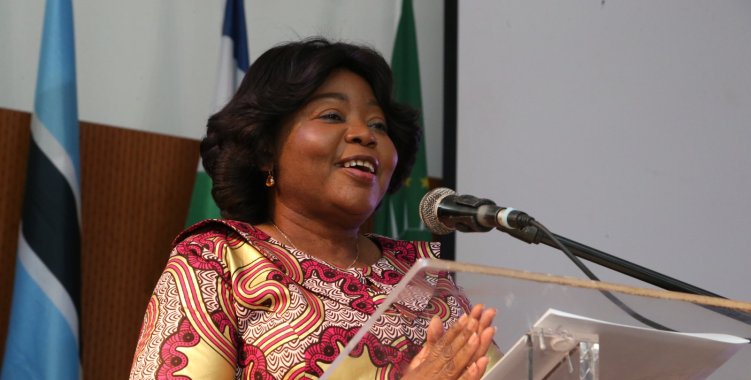Esperança da Costa made this observation when opening the Regional Conference of the Pan-African Women's Organization (OPM), as part of the celebration of its 61 years of existence.
In the opening speech of the conference, under the motto "The Resilience of African Women: The Contribution of the Agriculture Sector to Adaptation to Climate Change", the minister considered that more than mitigation, it is necessary to adopt adaptation mechanisms, strengthening the motto "Africa we want", from Agenda 2063.
"Africa capable of creating conditions for its food and nutritional security, for employment, family income, considering the Malabo Declaration, which essentially gives us the opportunity to evaluate the materialized aspects and propose a more impactful review, in scope of the challenges of agriculture and climate change", she said.
The vice-president highlighted that climate change represents a real threat to humanity, to the maintenance of life on the planet, which urgently requires the adoption of low-carbon development models and the carrying out of a set of structuring investments, aimed at strengthening the resilience of societies and economies.
"To this end, we need to expand access to technology, knowledge and financial resources with a view to stopping pollution, loss of biodiversity, problems that still largely affect humanity, which has been suffering losses and damages and unfairly Africa, which contributes little or nothing to the phenomenon of climate change", she highlighted.
In the opening session, the African Union (AU) Commissioner for Agriculture, Rural Development, Blue Economy and Sustainable Environment, Josefa Sacko, drew attention to the fact that climate change is having "a negative impact on the food and fodder of animals, and water availability, increasing thermal stress and altering the distribution of pests and diseases, which leads to a decrease in animal productivity and, ultimately, to food insecurity and a reduction in families' purchasing power".
"We are seeing this across Africa and this is very dangerous. We are registering coups d'état, demonstrations, discontent, in the social sphere", said Josefa Sacko.
The Angolan highlighted that Africa is expected to be one of the most affected regions in terms of food security, highlighting that, by 2025, it is estimated that 54 percent of the expected increase in malnutrition levels in the world will occur on the African continent.
Sacko said that the AU commission advises the Southern African Development Community (SADC) region to list some priority areas of action, as defined in the Strategic Action Plan for Climate Change and resilient development, such as promoting equitable sharing of risks climate change and payoff among all actors in the food system, especially women and small rural farmers.
The AU commissioner also cited strengthening the resilience of food systems against climate effects, while placing emphasis on nutritional results and integrated planning, production towards the agroecological transition, a culture that already exists in Africa, to reduce the intensity of gases greenhouse effect (including methane from livestock) and dependence on external production factors.
Reinforcing food system governance interventions in all SADC Member States and financing, investment and resource allocation are also recommendations, which if fulfilled could "strengthen the business opportunities that the potential of their agriculture offers, taking as targets the empowerment of women in this sector with a view to better tackling climate change", said Josefa Sacko.
Discussions at the conference took place around the general lines of the Green Recovery Action Plan and the Intersectoral Impacts of Climate Change, Gender and Migration.
Representatives from South Africa, Lesotho, Zambia, Angola, Uganda, Eswatini, Mozambique, Namibia and Zimbabwe participated in the conference.







